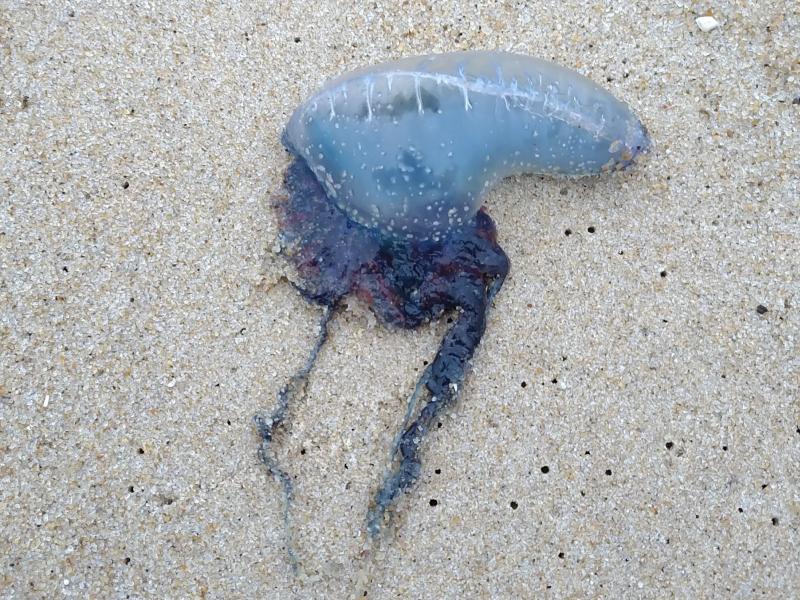The sighting hasn’t been confirmed by the state, but a recent report of Portuguese man-of-war washing up on Fenwick Island beaches serves as a reminder to beachgoers: these long-tentacled, pain-inflicting animals are rarely found along Delaware’s shores.
According to a June 23 post on Delaware Surf Fishing’s Facebook page, Portuguese man-of-wars washed up on the upper part of the beach at Fenwick Island State Park June 22.
Rich King, Delaware Surf Fishing page administrator, added to the post, saying to keep an eye out while standing in the surf when fishing.
“Be careful out there. Watch your feet if you are standing in the water fishing like we usually do this time of year. One strand of tentacles can light you up,” King wrote.
Michael Globetti, spokesman for Delaware Department of Natural Resources and Environmental Control, said DNREC has not confirmed any man-o-wars on the state’s beaches this year. He said the last time they were confirmed on shore, or seen in the ocean near Delaware’s beaches, was in 2015 when they washed up on beaches in Fenwick Island, Delaware Seashore State Park and Cape Henlopen State Park.
According to the National Oceanic and Atmospheric Administration the man-of-war is a species of siphonophore, a group of animals that is closely related to jellyfish. A siphonophore is unusual in that it is comprised of a colony of specialized, genetically identical individuals called zooids, clones with various forms and functions, all working together as one, says NOAA.
“Each of the four specialized parts of a man-of-war is responsible for a specific task, such as floating, capturing prey, feeding and reproduction,” the website says. Found mostly in tropical and subtropical seas, man-o-wars are propelled by winds and ocean currents alone, and sometimes float in legions of 1,000 or more, NOAA says.
Globetti pointed to more information on man-of-wars from a July 2015 DNREC press release, which said their tentacles can grow to 50 feet in length and can cause painful stings, lasting up to an hour and leaving whip-like red welts on the skin for several days afterward. The press release said man-of-war stings, in rare instances, can result in a dangerous allergic reaction, possibly even death.
The press release states the man-of-war’s stinging cells can continue to inflict injury even after the animal has washed up on the beach and appears to be dead. The press release said beachgoers encountering a Portuguese man-of-war should exit the water immediately and inform the nearest lifeguard of their sighting.
Chris Flood has been working for the Cape Gazette since early 2014. He currently covers Rehoboth Beach and Henlopen Acres, but has also covered Dewey Beach and the state government. He covers environmental stories, business stories and random stories on subjects he finds interesting, and he also writes a column called Choppin’ Wood that runs every other week. He’s a graduate of the University of Maine and the Landing School of Boat Building & Design.




















































